
Why Do We Get Worse at Games Than Better: The Psychology Behind Our Gaming Skills
Why Do We Get Worse at Games Than Better: The Psychology Behind Our Gaming Skills
Introduction
Gaming is a fun and popular pastime for many. Yet, have you ever felt like you’re getting worse instead of better? This strange phenomenon can be frustrating. Let’s unpack the psychological factors that might influence your gaming performance and skills.
Summary and Overview
In recent years, gaming has surged in popularity, captivating millions globally. However, this rise brings psychological complexities. Concepts like cognitive load, motivation, and skill acquisition play crucial roles in how we perform in games.
Cognitive load refers to the mental effort involved in learning. When overwhelmed, our performance can drop. Likewise, motivation, whether intrinsic or extrinsic, significantly affects how we engage with games. Intrinsic motivation drives you to play for enjoyment, while extrinsic motivation ties to rewards.
Understanding these psychological elements is essential for gamers wanting to enhance their skills. By recognizing the mental barriers and boosts, players can better navigate their gaming experiences.
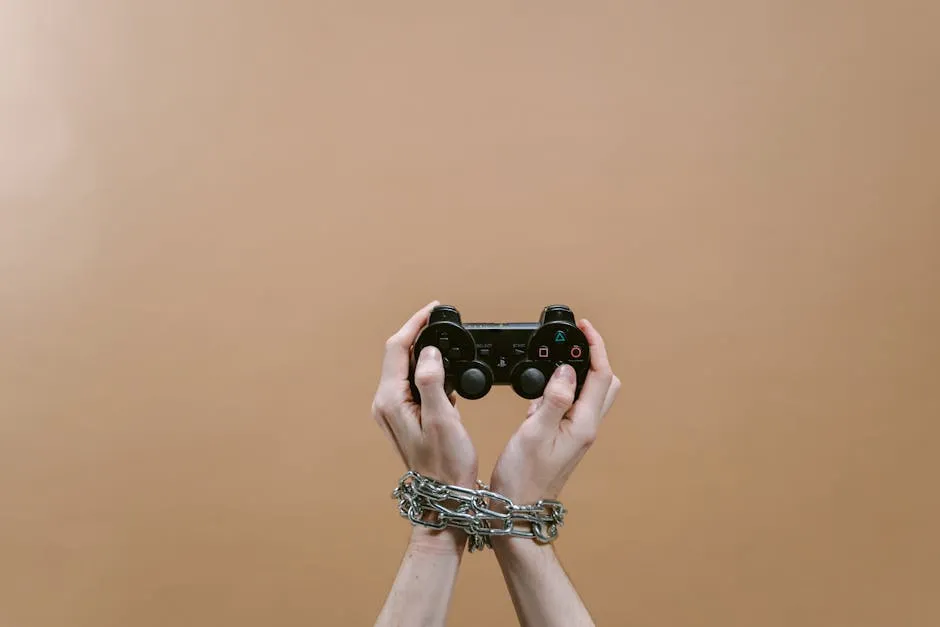
The Nature of Skill Acquisition in Gaming
What is Skill Acquisition?
Skill acquisition is the process of learning and mastering new abilities. In gaming, it involves progressing from novice to expert. This journey typically unfolds in stages:
1. Novice: Players lack experience but show enthusiasm.
2. Advanced Beginner: Players have basic understanding and begin to apply skills.
3. Competent: Players can handle multiple tasks and perform well under pressure.
4. Proficient: Players develop intuition and can adapt strategies effectively.
5. Expert: Players exhibit mastery and can tackle challenges with ease.
Each stage requires practice, feedback, and self-reflection. Understanding these stages helps gamers identify where they stand and what they need to improve. It also clarifies why some players feel stuck or regress despite their efforts.
If you’re looking to level up your gaming setup, consider enhancing your experience with the Logitech G502 HERO Gaming Mouse. With its customizable weights and precision, it can help you master those tricky maneuvers in-game!

The Role of Practice
Practice is essential for improving at any skill, including gaming. The more you play, the better you become. But it’s not just about the hours spent; it’s about how you practice. This is where deliberate practice comes in.
Deliberate practice means focusing on specific skills and receiving feedback. In gaming, this could involve targeting areas where you struggle, such as aiming or strategy. It’s about pushing your limits and honing your skills. For example, a player may repeatedly practice a challenging level to master it. This focused approach helps build proficiency and confidence over time.
Ultimately, without consistent and mindful practice, improvement can stall. Understanding this concept can help gamers structure their practice sessions for maximum benefit.
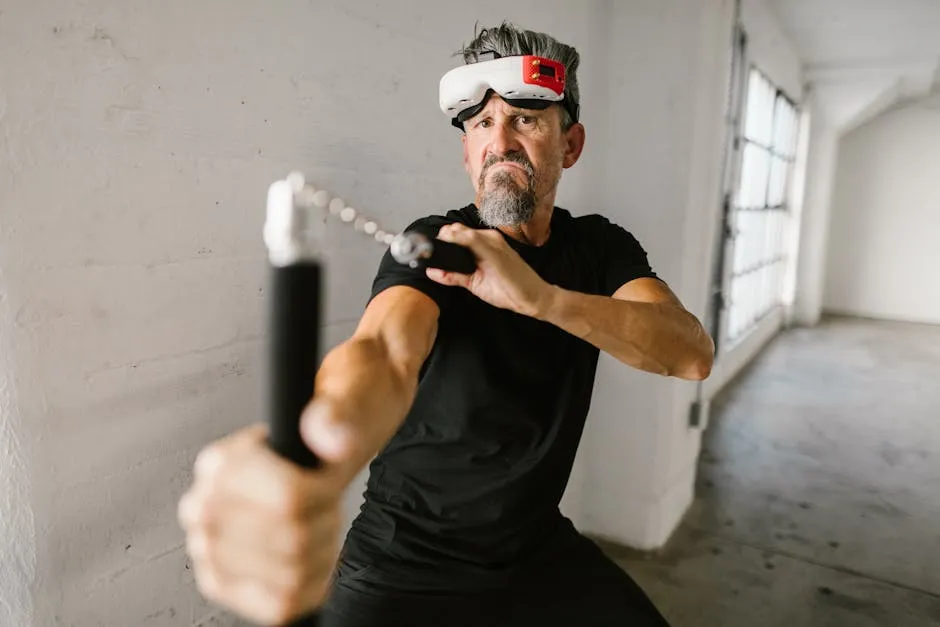
Psychological Factors Affecting Gaming Skills
Cognitive Load Theory
Cognitive load theory explains how our mental capacity affects performance. In gaming, this relates to how much information we can handle at once. When faced with too many tasks or overwhelming details, our performance can decline.
For example, think about a fast-paced shooter game. You must track enemy movements, aim, and avoid obstacles. If there’s too much happening at once, your brain can get overloaded. This cognitive overload can lead to mistakes and frustration.
Thus, managing cognitive load is crucial for gamers. Simplifying strategies or focusing on one task at a time can enhance performance. By recognizing when you’re overwhelmed, you can adjust your approach for better results.

Motivation and Its Impact
Motivation plays a vital role in gaming performance. It can be intrinsic or extrinsic. Intrinsic motivation comes from within, such as enjoyment or personal challenge. Extrinsic motivation, on the other hand, involves external rewards like points or achievements.
Players driven by intrinsic motivation often show greater persistence. They play for the joy of the game, leading to deeper engagement and skill development. Conversely, those focused on external rewards may burn out quickly. When the novelty fades, so does their motivation.
Understanding your motivation can influence how you approach gaming. If you find yourself losing interest, consider exploring new aspects of the game. This can reignite your passion and support your growth as a player.
Speaking of motivation, if you’re gearing up for an epic gaming session, don’t forget to fuel up with some snacks! Check out this Variety Snack Box to keep your energy levels up while you conquer those virtual worlds!
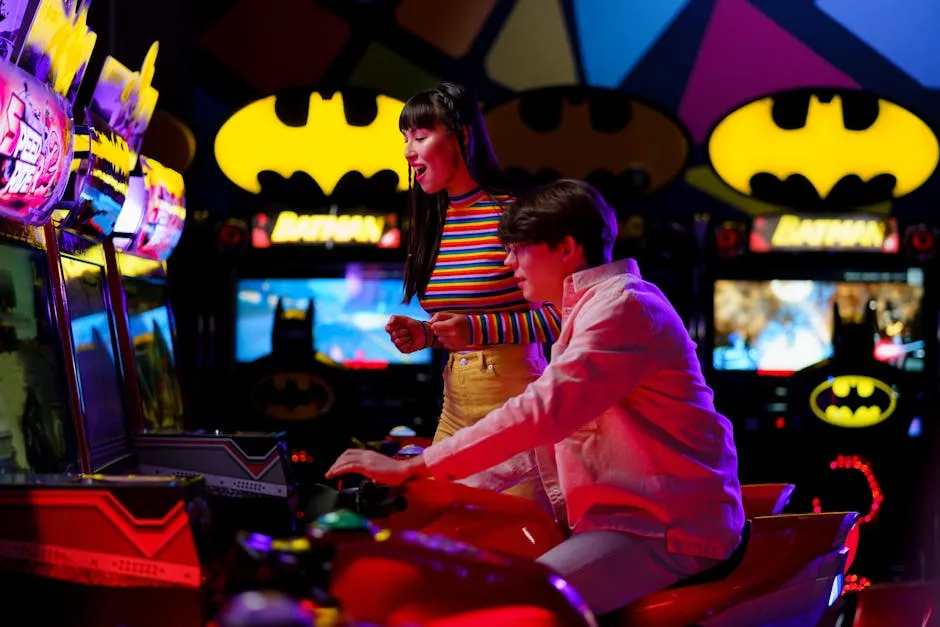
The Sunk Cost Fallacy
The sunk cost fallacy is a common cognitive bias in gaming. It refers to the tendency to continue investing in something because of the resources already spent, even if it no longer brings joy.
For instance, imagine you’ve played a game for hours but are no longer enjoying it. You might feel compelled to finish, thinking about the time already invested. This mindset can lead to frustration and decreased performance.
Recognizing this fallacy is essential. It’s okay to walk away from a game that no longer captivates you. By letting go of sunk costs, you can focus on experiences that bring satisfaction and improve your skills. This shift in thinking can lead to a more enjoyable gaming journey.

The Paradox of Improvement
The Plateau Effect
Have you ever practiced a game for hours and felt no progress? This is known as the plateau effect. It occurs when players reach a stage where improvement seems to stall. At first, skills develop rapidly. However, after some time, gains become harder to notice. Players may feel frustrated, believing they are not getting better despite their efforts.
This phenomenon can stem from several factors. As players advance, the skills they need become more complex. The initial excitement of learning fades, making progress feel slower. Additionally, expectations can play a role. Players may expect continuous improvement, but skill development isn’t linear. Recognizing that plateaus are part of the learning process can keep motivation alive.
If you’re looking to shake things up during those plateau phases, consider investing in a Razer BlackWidow V3 Gaming Keyboard. With its responsive keys and customizable lighting, it can bring a new spark to your gaming experience!
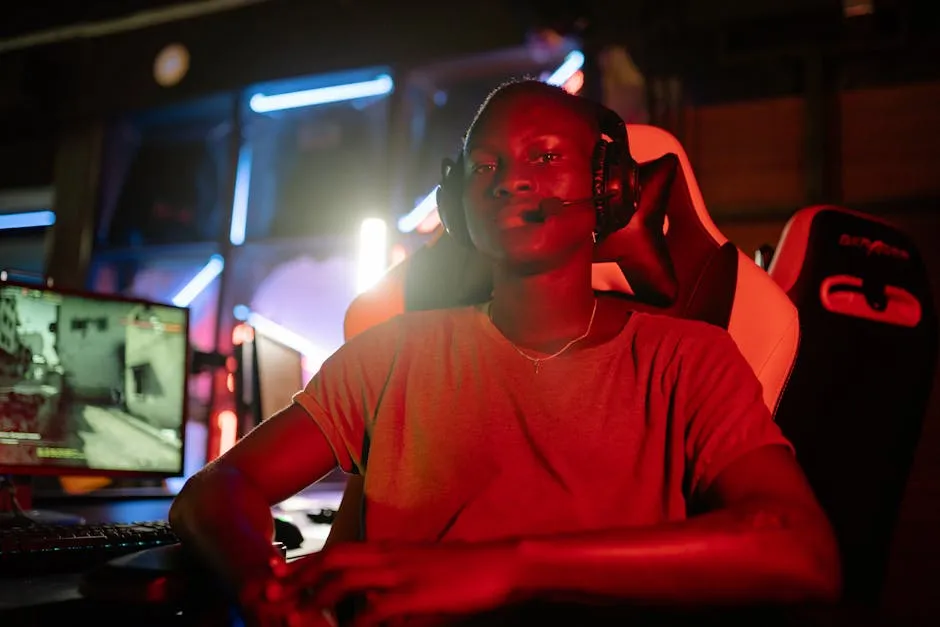
The Dunning-Kruger Effect
The Dunning-Kruger effect is a psychological phenomenon where individuals with limited knowledge overestimate their skills. In gaming, this often affects novice players. They may think they are better than they actually are, leading to poor performance and frustration.
This overconfidence can result in a lack of improvement. When players believe they know enough, they might skip essential practice or feedback. As a result, their skills stagnate. Acknowledging one’s limitations can encourage a more realistic approach to learning and growth. Embracing humility allows players to seek help, learn, and ultimately enhance their gaming abilities.

External Factors Influencing Gaming Performance
Game Design and Mechanics
Game design significantly impacts player performance. Developers craft experiences that can either enhance or hinder a player’s skills. For instance, difficulty scaling adjusts challenges based on player performance. This keeps games engaging and can motivate improvement.
Feedback systems are also crucial. They inform players about their successes and areas for growth. Games that provide instant feedback help players adjust strategies in real-time. However, poorly designed games can frustrate players and lead to disengagement. Understanding how game mechanics influence performance can guide players in selecting experiences that foster skill enhancement.
And while you’re at it, make sure you’re set up for optimal gameplay with a proper monitor. The ASUS ROG Swift 27″ Gaming Monitor offers stunning visuals that can elevate your gaming experience to new heights!
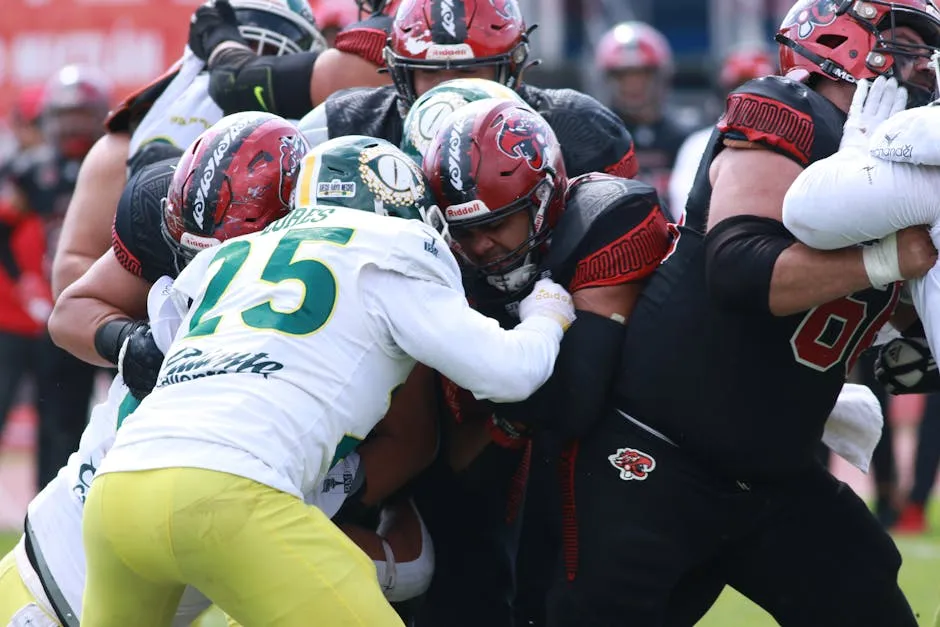
Social Influences
Social dynamics within gaming communities can greatly affect performance. Online interactions often involve competition and collaboration. While competition can motivate players to improve, it can also create pressure. This pressure may lead to anxiety and hinder performance.
Conversely, collaboration fosters learning and support. Players can share tips, strategies, and encouragement. Peer pressure can push individuals to perform better, but it can also lead to burnout. Recognizing these social influences allows gamers to navigate their interactions in ways that support their growth and enjoyment.

Strategies for Improvement
Setting Realistic Goals
Setting achievable goals is key in gaming. It helps you focus your efforts and track progress effectively. Short-term goals can include mastering a specific skill or completing a challenging level. For instance, you might aim to improve your aim in a first-person shooter within a week. Long-term goals could involve unlocking all achievements in a game or reaching a certain rank in competitive play. By breaking your aspirations into manageable pieces, you can maintain motivation and experience a sense of accomplishment. This structured approach fosters growth and makes the gaming journey more enjoyable.
To help with your goal setting, consider keeping a journal. The Leuchtturm1917 A5 Notebook is perfect for jotting down your strategies, thoughts, and progress in your gaming journey.

Utilizing Feedback
Feedback is a vital component of skill improvement. It offers insights into your performance and highlights areas for growth. As a player, you can seek feedback in various ways. Watching replays of your gameplay can reveal mistakes you may not notice in the moment. Additionally, engaging with online communities can provide valuable tips and critiques. Constructive feedback allows you to adjust your strategies and refine your skills. Remember, embracing feedback is essential for continuous improvement. Use it to turn challenges into learning opportunities and elevate your gaming experience.
And for those long gaming sessions, don’t forget to keep hydrated! A stylish Hydro Flask Water Bottle will keep your drink cold while you conquer your gaming goals!
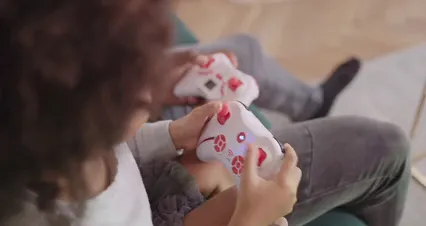
Mindset and Resilience
A growth mindset is crucial for success in gaming. This mindset encourages you to view challenges as opportunities to learn. When facing setbacks, remind yourself that improvement takes time. Building resilience can help you cope with frustration. Start by acknowledging your feelings and reflecting on what went wrong. Instead of giving up, focus on what you can learn from the experience. Practicing self-compassion is also important. Be kind to yourself as you navigate the ups and downs of gaming. This positive approach fosters a love for gaming and empowers you to keep pushing forward.
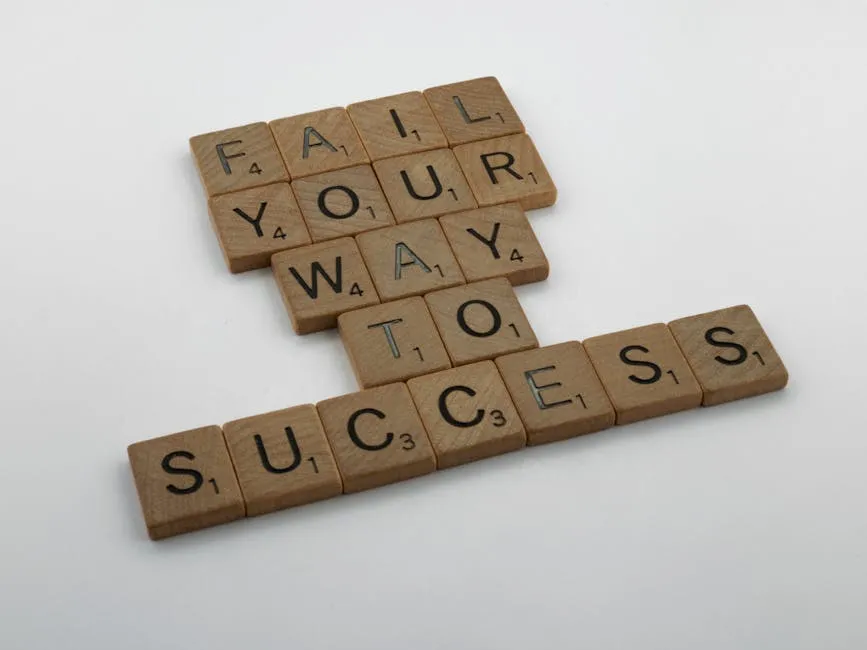
Conclusion
Psychological factors play a significant role in gaming performance. Understanding concepts like motivation, feedback, and mindset can lead to improved skills. By adopting a positive attitude and implementing effective strategies, you can enhance your gaming experience. Remember, growth takes time, so be patient with yourself. Enjoy the journey of becoming a better player!
And if you’re looking to take your gaming setup to the next level, consider investing in a Homall Gaming Chair. Comfort is key when you’re spending hours honing your skills!

FAQs
Why do some players feel they are getting worse at games?
Many gamers experience the sensation of declining performance due to several psychological factors. A primary reason is the pressure of expectations. When players expect rapid improvement, they often feel disappointment when progress slows. Additionally, players may face cognitive overload, where too much information hinders their gaming performance. This can lead to frustration and a perception of regression. Understanding that skill acquisition is not linear helps frame this experience more positively. Accepting ups and downs can foster a healthier gaming mindset.
What psychological factors affect gaming skills?
Motivation is a key psychological factor influencing gaming skills. Players with high intrinsic motivation, driven by enjoyment and personal challenge, tend to persist longer and improve faster. Conversely, extrinsic motivation can lead to burnout when external rewards fade. Cognitive load also plays a role; excessive information can overwhelm players, impacting their performance. Lastly, the Dunning-Kruger effect can distort self-assessment, as novice players often overestimate their skills, leading to stagnation. Recognizing these factors can enhance understanding of gaming dynamics.
How can I improve my gaming skills?
To boost your gaming skills, start with clear goal-setting. Break down larger objectives into manageable tasks. For example, focus on improving your aim in a shooter game this week. Regularly incorporate feedback; review your gameplay or ask peers for constructive criticism. Practicing specific skills in a focused manner leads to tangible improvements. Finally, maintain a positive mindset and celebrate small victories to keep motivation high. This structured approach can make a significant difference in your gaming journey.
What is the plateau effect in gaming?
The plateau effect refers to a stage where players feel stuck despite practice. Initially, skills develop quickly, but over time, progress may seem to stall. This can be frustrating, as players expect consistent improvement. Factors contributing to this effect include increasingly complex skills and the natural ebb and flow of motivation. Recognizing that plateaus are a normal part of skill acquisition can help players stay motivated. Embracing this phase as a learning opportunity is vital for long-term growth.
How does game design influence player performance?
Game design significantly impacts player performance through various mechanics. Difficulty scaling adjusts challenges based on player skill, ensuring a balanced experience. Well-designed feedback systems provide players with immediate information about their performance, helping them adjust strategies in real-time. Conversely, poorly designed games can lead to frustration and disengagement. Elements like clear objectives, engaging narratives, and appropriate pacing foster player investment and skill development. Understanding these design influences can guide players in choosing games that enhance their skills effectively.
Please let us know what you think about our content by leaving a comment down below!
Thank you for reading till here 🙂
All images from Pexels




